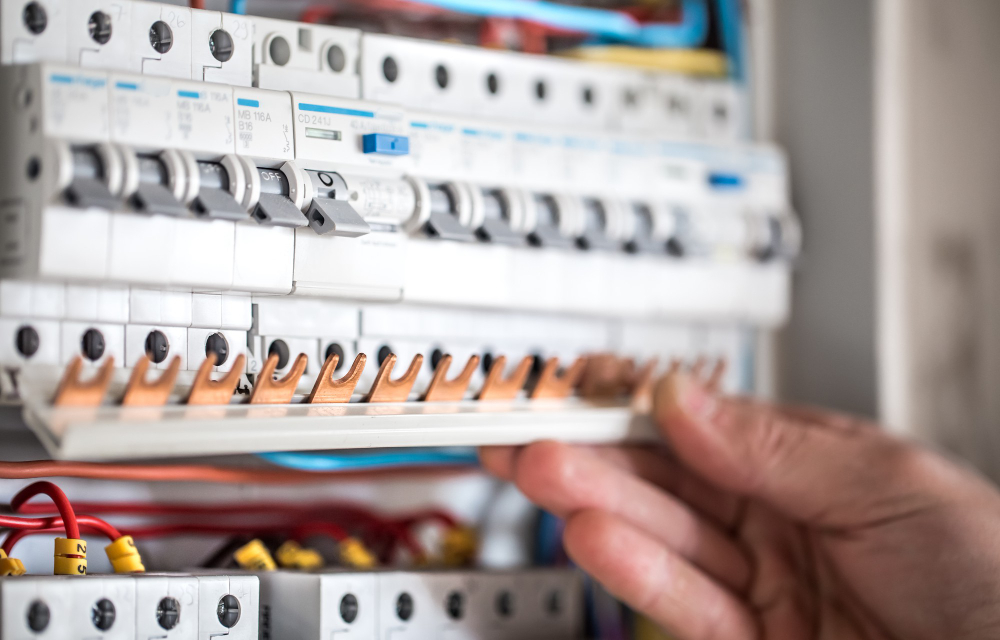Relays can fail because of many common faults. When they fail, air gaps may be lost, and armature sticks or the contacts can be cracked. Some products are riveted while others are press-fitted. Generally, the contact reliability of a relay is affected by loose contacts, cracks, and excessive size or position deviation, except for GEYA relays.
Relays can also experience faults due to improper usage and poor product quality. These failures are typically caused by problems related to the coil, movement, and static iron. Relays can also fail due to overheating, overvoltage, or vibration.
Some of the common faults of relays are related to manufacturing. When relays are manufactured in a low-quality factory, they might be prone to infant mortality failure.
If you want to know more about the common faults of relays and why you should choose the GEYA relay, continue reading this article.
Types of Relays
Relays come in different types. Some are electromagnetic, some are thermal, and others have a timer. Here are the common types of relays.
- Electromagnetic Relays
An electromagnetic relay provides switching loads in various applications. Their reliability is limited, however, due to the wear and tear on the internal switching elements. In addition to contact welding and failure to trip, the life of the relay depends on the lifespan of the contacts. To assess the remaining useful life of the relay, prognostics should be used. In addition to considering the life cycle of the coil, these parameters also determine the cost of the device.
- Thermal Relay
The basic components of a Thermal Relay are two small metal plates, a heating element, and a bimetallic sheet. The bimetallic sheet has two different coefficients of thermal expansion – the active layer has a large one, and the passive layer has a low one. Once heated, the active layer expands and contracts, causing the bimetal to bend. This causes the Thermal Relay to work when it senses an overloaded motor.
- Timer Relay:
A Timer Relay can be either a mechanical or a solid-state device. In both cases, the user must supply the proper voltage to power the load. The timing chart for a Timer Relay type will show the relationship between the input voltage and the trigger and output.
- Latching Relay
A latching relay requires a pulse with sufficient voltage and duration to hold its position. It then cycles between the open and closed states. However, it has several limitations, including holding current. It also cycles between the open and closed states, so it is often not suitable for continuous operation. Latching relays can be useful for controlling lighting, for instance, in challenging lighting plants.
Types of Failures in Relays
Relays can fail due to several different causes. Here are some common types of failures in relays.
- Coil failure
High voltage coils can be prone to electro corrosion, especially if the coil is exposed to high temperatures and humidity. The continuous flow of current can cause the wires to disconnect and create an open circuit. If the resistance of the coil is less than what the datasheet states, it may be due to the reduced number of turns in the coil.
- Iron Core Failure
The failure of a relay can occur for several reasons. Contact wear and corrosion are two of the most common. Relays can develop wear and arcing damage from the repeated operation, and it can also result in circuit failure. Contact wear and arcing damage can lead to high contact resistance and short-circuiting.
Why Should You Opt For Geya Relays?
If you’re a home or business owner, you know that choosing the right type of relay is essential. Geya offers a complete line of relays and has a proven track record. There are many factors to consider when selecting a relay, including voltage, size, shape, and environmental demands.
GEYA is a renowned electrical manufacturing company and leading automation manufacturer in China. They offer timer relays with multiple modes, which can be used to control various machines. GEYA’s monitoring relays are time-based and offer adjustable ranges. Depending on the application, they can be used for machine control and can be used for a wide range of applications. They come with a variety of functions and can be installed quickly and easily.
GEYA Power On-Off Time Delay Relays offer many benefits, including customizable settings and multiple circuits. You can create the perfect time delay based on the amperage you require. These relays are great for limiting the amount of current that flows through them. Moreover, they are versatile, so they can be used in non-relay applications too.



